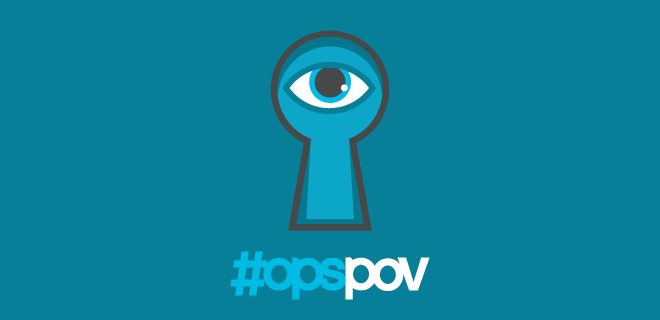
The other day, a publisher friend of mine tapped my shoulder about a release the Electronic Frontier Foundation put out fairly recently. This was a release calling for a radical tightening of security around user data.
The sense of urgency, as EFF’s argument goes, is that we’re in an increasingly charged political environment in the U.S.; and that with the way data is commonly shared, government agencies would be in a prime position to monitor and persecute common citizens through common user data. (That is, if those government agencies really wanted to.) The EFF was putting forward a plea to tech companies, then, to bring up their shields and heighten their default data security and privacy measures for users.
“Oh, hey, this is about ad platforms,” my friend told me as he forwarded me the link.
I should clarify this is a longtime editorial guy who works for a pure digital outlet, but who’s no great fan of the ad-supported model. We’ve had these conversations about data privacy for years.
He’ll raise a privacy concern. I’ll say, “Yeah, but tech companies are only going to use the data they can monetize, which is pretty innocuous. And in any case, there are government regulations about PII and whatnot; there’s a lot of personal data tech companies legally aren’t supposed to disclose.”
He’ll say, “Yeah, but they can if they wanted to.” I’ll say, “Yeah, but if you want to get technical about it, so can basically every consumer-facing company with an internet connection.” He’ll say, “But ad platforms are in a unique position to process and deliver data.”
We keep having variations of this conversation because neither of us is about to adopt the other’s perspective, and neither of us is particularly wrong.
In any case, this time, regarding the EFF’s release, my friend wanted to know whether I thought this was the right moment for the digital ad industry to re-examine the way it handled and shared consumer data. I told him it wasn’t likely, because the ad industry generally doesn’t mobilize to solve hypothetical problems.
The EFF, on its own part, might be worried about the role tech companies might play if the government decided to start targeting dissidents. The ad tech industry isn’t about to do very much about it, though, because it’s not happening now. There are plenty of problems in digital advertising that need to be solved right now, because they’re causing someone to hemorrhage money, or they’re causing someone to leave money on the table.
Most of those problems can be solved, but it’s impossible to say the solutions won’t leave a window open for further problems to get in. As one exec from one tech vendor company told me in a recent conversation, “The ad tech industry is awesome at solving for exactly what you want and not worrying how you get there.”
It’s difficult to make decisions purely on principle in digital. Furthermore, the pressures of the marketplace make it extremely difficult to step back and re-evaluate the basic structure of just about anything. Change usually happens incrementally, and it tends to come about when the bottom line is threatened.
Think about the issue of fraud in the exchanges. Everyone more or less knew about it for ages, but there wasn’t much incentive to combat it broadly until buyers became furious about lost spend and certain tech players were hauled out onto the rug for their alleged complicity.
Think about the “fake news” problem. Premium publishers are livid about it, but many buyers fear that if they blacklist fake news sites, their competitors will swoop in instead. How much business are you going to risk to take a principled stand?
It’s hard to argue the prevalence of fake news hasn’t brought us to some kind of civic crisis. But a civic crisis is unlikely to move the needle on business before it becomes a business crisis.
Does consumer data that hasn’t been properly encrypted present another potential civic crisis, if a certain narrative plays out in Washington? Of course it does. And it always has.
But it would take a truly severe series of events before the digital ad industry substantially changed its practice of sorting users into audiences based on assumptions about their demographic characteristics and interests—because that’s what everyone else in the industry has always done and is set up to keep doing.
To dial back the more incendiary suggestions of the EFF’s statement, there’s something pretty easy to agree with, something toward which the industry is trending anyway: It’s generally a good idea to allow users to opt out of certain kinds of digital tracking if that’s what they want. And the reason it’s trending is—surprise!—there’s a money-driven imperative.
The rise of ad blocking in the U.S. caused a tectonic freakout among publishers. What followed was an admission that users want options, and a re-thinking of the user/publisher value exchange. As of now, it looks like we’re seeing a new paradigm emerging, where users have more control over their ad experiences, but publishers can still get some kind of value from users who don’t want to be subject to ad targeting.
It didn’t take a massive government surveillance program to start pushing toward a situation where users have more control over how they opt in or opt out of sharing their own data. All it took was widespread panic that publisher revenue was going to fall into the toilet otherwise.